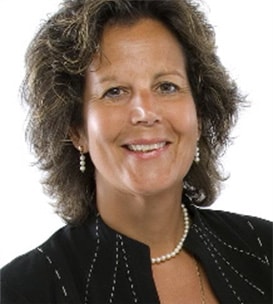Reflections on Pride Month and parenting
Victoria Ferrara, Founder and CEO of Worldwide Surrogacy, takes a look at how far we have come in terms of parenting laws.
As we start closing out another Pride Month, our LGBTQ+ community has so much still to work for – but there is also so much to celebrate and be proud of. Recently in Connecticut, the Child Parent Security Act became law. This new law is another important step forward for us on our journey of progress. Among other provisions, this new law will allow the non-genetic parent in a same-sex couple to become the legal parent of her partner’s or spouse’s child without the need for a co-parent adoption (also known as a confirmatory adoption).

Unfortunately, the hoopla about this law and the pre-passage press left me a bit discouraged because there were references to the State of Connecticut as a place where gay couples faced intense discrimination. I could not help but think of the rich history of the gay rights movement in Connecticut as well as in many other States in the U.S. and, that although we still face challenges in certain areas, we have made so much overall progress. We should not overlook this progress and we should not forget to acknowledge and celebrate our successes.
When my partner and I had our first child in 1995, there was no co-parent adoption available in Connecticut. We testified before the Connecticut legislature in 2001 and eventually the State passed co-parent adoption laws that would enable a family like mine to have two legal parents.
Next, we were able to secure our relationship through a Civil Union, and although we saw Civil Unions as a lesser alternative to marriage, we nevertheless knew we were making strides. And then, we enjoyed the thrill of gaining access to marriage equality – first as residents of Connecticut and then again when it became U.S. law through the 2015 U.S. Supreme Court case of Obergefell v. Hodges.
On the horizon, the Fulton v. City of Philadelphia decision will soon be handed down by the U.S. Supreme Court. In this case, the City of Philadelphia is trying to enforce a generally applicable law against LGBTQ+ discrimination by not renewing a contract for a Catholic foster parenting agency that is refusing to certify gay foster parents. We are all concerned about the conservative-leaning court giving life to discriminatory practices through the thinly-veiled disguise of religious freedom.
But I have hope about this outcome and here’s why: In the 1990 Supreme Court case of Employment Div. v. Smith, Justice Antonin Scalia wrote the majority decision. In the decision, he wrote, “Respondents urge us to hold, quite simply, that when otherwise prohibitable conduct is accompanied by religious convictions, not only the convictions but the conduct itself must be free from governmental regulation. We have never held that and decline to do so now.” I am hopeful because Justice Amy Coney Barrett was a protégé of Scalia and if all goes well, she will be in a majority that will uphold a law that forbids discrimination just as Scalia did in the Smith case.
As we struggle to maintain equality and disentangle discriminatory schemes, let’s not forget the progress we have made and that there is so much cause to celebrate in Pride!

About the author
Victoria Ferrara has practiced in the courts of Connecticut and New York for the past thirty years. Victoria has remained on the cutting edge of assisted reproductive law issues, representing clients in LGBT-related law proceedings and surrogacy arrangements. One of her greatest achievements is the landmark decision of Raftopol v. Ramey, a Supreme Court case that established a new way to determine legal parentage in Connecticut. Victoria has published numerous articles and lectured and presented as a panelist in surrogacy conferences throughout the world.






